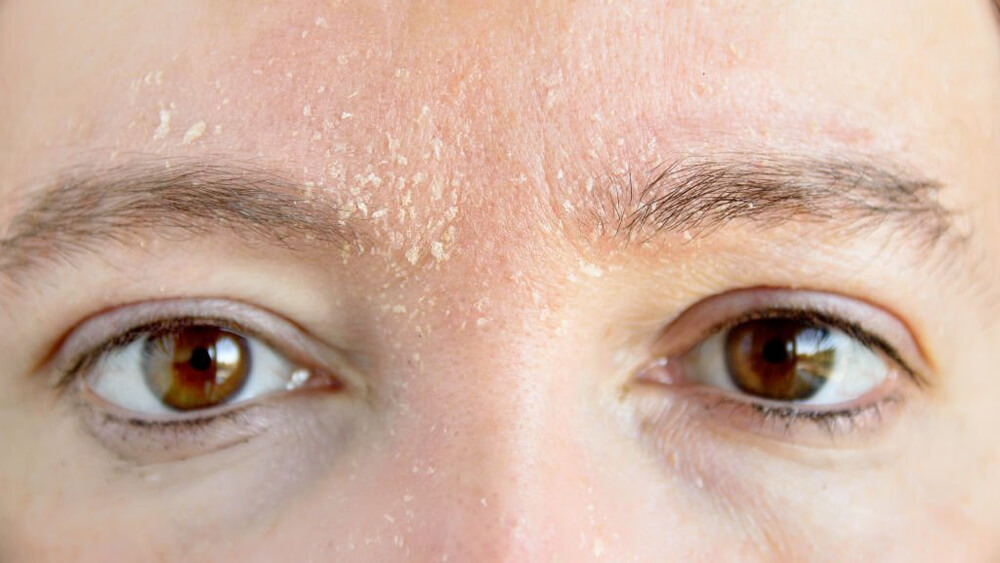Desquamation, more often known as peeling, occurs naturally during the renewal of skin cells. Sunburns amplify this effect, causing larger numbers of dead skin cells to separate from the skin. In a sense, it is similar to a snake shedding its skin. Sunburns are the most common cause of widespread desquamation, while allergic responses and psoriasis can also increase peeling.
The common reasons for skin peeling
Skin peeling is typically caused by sunburn and indicates that the upper layer of your skin (known as the epidermis) has been damaged by the sun’s rays. However, there are other causes of peeling skin, such as:
- An immune system dysfunction
- A viral, bacterial, or fungal infection
- Dry skin from frequent hand-washing friction
- Exfoliative keratolysis (a skin condition that causes peeling on the palms of the hands or soles of the feet)
- Acral peeling skin disease and exfoliative dermatitis are two rare skin conditions (peeling skin all over your body that usually requires hospitalization)
- Allergic responses
- Skin sensitivity to products such as retinol or vitamin C
- cancer and cancer treatment

How to prevent sunburn peeling
You may prevent peeling by taking precautions before exposing your skin to the sun. The first thing you should do before a vacation is to exfoliate your skin. After exfoliating, your skin will be renewed and clear of dead cells. When you can (finally) go outside and soak up some rays, remember to take the same safety measures you always have: use sunscreen and stay out of direct sunlight between 10 a.m. and 2 p.m. The sun’s rays are particularly strong at this time of year, making sunburn and peeling considerably more likely.
Practical methods to prevent skin peeling
Here are a few ways to prevent your skin from peeling:
Use a moisturizing lotion or cream
Hydrating the skin will speed up the restoration process. Choose a hypoallergenic, fragrance-free moisturizing cream or ointment and apply it many times a day. Your skin will recover more quickly if you give it plenty of moisture.
If you have a sunburn, apply aloe vera gel
If you know your peeling skin is caused by a sunburn, apply a generous amount of 100% aloe vera gel to your skin once a day. Use daily to keep your skin hydrated and healed. Aloe vera is also cooling, so it can help relieve any inflammation from your sunburn. If you have a sunburn, avoid using heavy ointments like petroleum jelly. Heavy ointments prevent your skin from breathing and might aggravate burns.
Let your skin peel naturally
Picking or peeling your skin yourself might lead to illnesses. While it may be tempting to peel off the skin to expedite the process, doing so might rip or tear your healthy skin, allowing the possibility of infection and scars. Also, it is highly recommended that you reschedule your skin resurfacing treatment appointments such as Microneedling, Sublative, or Fractora to when your skin has healed completely. Let your skin peel naturally to avoid any negative consequences.
Use a cold compress to cool your skin
If your skin is heated, wipe it down with a cool washcloth. When your skin peels following a sunburn, you may feel slightly heated or uneasy. If this is the case, soak a washcloth in cool water and wring it out. Hold the washcloth against your skin for about 20 minutes, or until it heats up.
Skincare after sunburn in Vancouver
Sunburns and peeling can cause major skin damage. Sunburn can increase your risk of skin cancer and cause premature aging of your skin. Use sunscreen, be gentle with your skin, and conduct patch testing on new items to stay safe. If you’re not sure what’s wrong with your skin, consult our dermatologist at celebrity laser care located in Vancouver.
